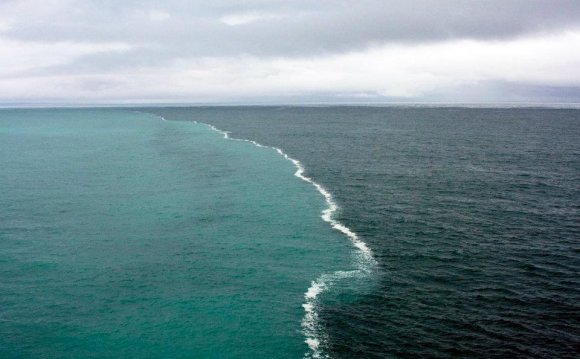
The North Seas Grid should be one of the building blocks of the Energy Union, companies and campaigners have told EU energy ministers, as momentum builds behind the project connecting offshore wind farms in ten countries.
The grid would boost interconnection and renewables capacity, fight climate change and bolster energy security, which are the central goals of the Energy Union, E3G said.
Members of the European Parliament have backed the project, which will connect Ireland, Scotland, the UK, France, Belgium, Netherlands, Germany, Denmark, Sweden and Norway.
In 2014, there were seven billion-dollar financings of offshore wind projects in the North Sea, funded by the Netherlands, the UK and Germany. It included the 600MW Gemini project in Dutch waters, which at €4.1 billion was the largest non-hydro renewable energy plant to get the go-ahead anywhere in the world.
The booming offshore sector stands in stark contrasts to renewables investments in Europe last year, which grew by less than 1%, according to the United Nations Environment Programme’s (UNEP) annual Global Trends in Renewable Energy Investment report.
>Read: Europe trailing behind in global renewables rebound
Dutch Presidency
Maroš Šef?ovi?, Commission Vice-President in charge of Energy Union, has also signalled his support for the network.
“I think it is one of the most impressive projects I’ve seen in long time, ” he told EurActiv, before citing the region’s favourable conditions such as regulatory stability.
“I would really see it as an example for the future and I would say the pattern is one we have to study very closely and maybe use more widely [throughout the EU], ” he added.
Maria Donnelly, the European Commission’s director of Energy, has said she wants the grid prioritised when the Netherlands holds the rotating Presidency of the EU, in 2016.
Speaking last month, she said she wants the grid prioritised when the Netherlands holds the rotating Presidency of the EU in 2016.
Interconnectivity is a vital part of realising the Energy Union, a blueprint to bolster the bloc’s resistance to energy shortages. Interconnections means surplus power in one area can be moved to make up shortfalls elsewhere.
The plans include a target for interconnection of cross-border electricity grids across borders of at least 10% of a nation’s power generation capacity by 2020.
>Read: EU moves to improve Energy Union interconnections
But offshore wind companies are concerned there is not enough political support from member states to get results and to deliver investment at the lowest cost possible.
Informal Energy Council
Jonathan Gavanta, associate director of E3G, said, “This is an ideal opportunity to put a new political impetus behind strategic energy cooperation to develop the North Seas Offshore Grid.”
The letter called for the Informal Energy Council to endorse the grid as a key focus for enhanced regional cooperation, as part of the Energy Union.
Ministers should also commit to agree a legal inter-governmental agreement to define a shared North Sea electricity strategy, the letter said.
A multi-country investment platform for the North Sea should be discussed by the ministers. It would increase the visibility of the project pipeline, attract private and institutional investors, and enable a lower cost of capital, the letter said.
Industry is concerned that while arrangements such as the Baltic Energy Market Interconnection Plan were specifically cited in the Commission’s Energy Union communication, the North Seas Countries Offshore Grid Initiative was not.
The initiative has facilitated collaboration across the North Sea since 2009 and there is a well-developed investment pipeline of over €100 billion by 2030, industry said.
MEPs’ support
The project has won cross-party support from MEPs. Scottish Conservative Ian Duncan and Bas Eickhout hosted an event in March promoting the plan.
10% of Europe’s electricity could be generated from wind blowing across the North Sea but without interconnection between Ireland, Scotland, the UK, France, Belgium, Netherlands, Germany, Denmark, Sweden and Norway, much of that will be lost, they wrote in EurActiv.
>Read: North Sea Grid will prove EU is serious about Energy Union
Today (9 April), Duncan said the 2016 Dutch Presidency was the perfect opportunity to stop talking and start delivering. It was vital that the ten ministers backed the grid, he added.
“If we are to make progress toward a common electricity market, with reduced costs and lower bills for consumers and industry then we have to act now, ” said Duncan.
“We have an opportunity to connect up our domestic grids, which in the short term will provide jobs in construction and in the long term in maintaining the cables. Such opportunities would inject a much needed lift to many ports struggling with the economic downturn.”
RELATED VIDEO












